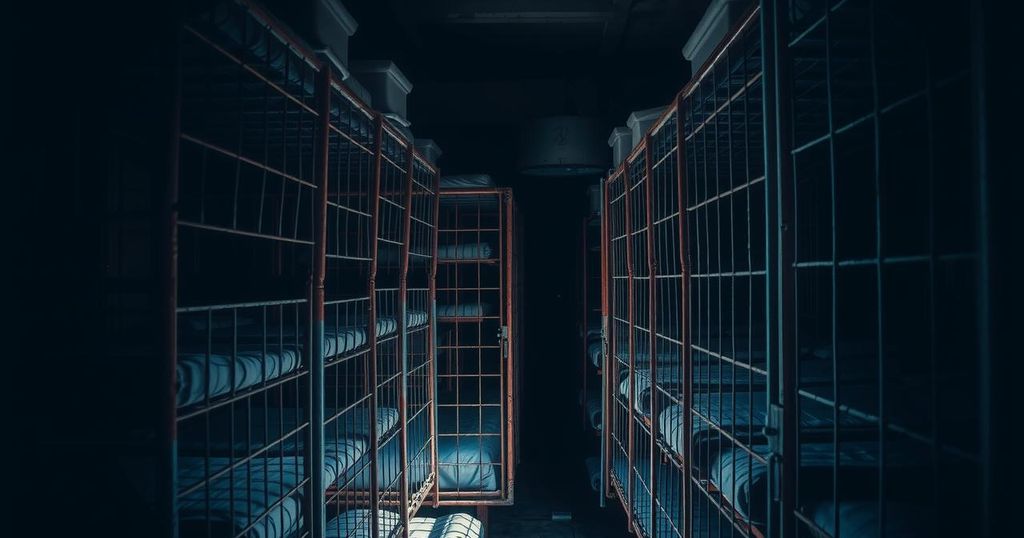Deportation of Venezuelan Immigrants to El Salvador: A Legal and Human Rights Crisis

On March 15, the U.S. deported over 200 Venezuelan immigrants to El Salvador due to alleged gang ties, invoking the Alien Enemies Act. Salvadoran President Bukele offered detention in notorious prisons, leading to U.S. funding for this initiative. The courts temporarily blocked the use of the act after concerns about legality arose, while the detainees are reportedly facing dire conditions in prison, exacerbated by El Salvador’s troubled human rights record.
On March 15, more than 200 Venezuelan immigrants were deported from the United States to El Salvador, accused of gang involvement. This significant move was described by the U.S. government as a response to the alleged activities of the Venezuelan gang Tren de Aragua, which President Donald Trump characterized as an invasion. The Alien Enemies Act, a law invoked by President Trump, allowed for the detention and deportation of noncitizens in this context, an unprecedented application without a Congressional declaration of war.
Salvadoran President Nayib Bukele offered to detain deportees and convicted U.S. citizens in notorious prisons during a visit by Secretary of State Marco Rubio. This agreement resulted in the Trump administration providing $6 million to El Salvador for one year of detention for the Venezuelans. U.S. government officials stated that out of the deported individuals, 137 were sent under the Alien Enemies Act, while others were processed through regular systems.
U.S. courts have temporarily blocked the application of the Alien Enemies Act in this situation, with a judge’s ruling upheld by an appeals court. On March 26, U.S. Secretary of Homeland Security Kristi Noem visited the high-security Center for Terrorism Confinement (CECOT) in El Salvador, where the deported individuals are currently held. Reports indicate that detainees are subjected to dire conditions, including overcrowding and inadequate basic necessities.
El Salvador’s history reflects significant human rights violations, particularly during its civil war from 1979 to 1992, marked by a lack of accountability for abuses. Post-war governance has seen a rise in gang violence, leading to extreme measures, such as a state of emergency that has resulted in mass detentions without warrants. President Bukele’s administration faces criticism for neglecting constitutional rights, despite notable declines in murder rates due to the stringent measures.
Salvadoran society has been heavily influenced by its tumultuous history, leading to entrenched cycles of violence and gang activity. Bukele has taken a hardline approach to combat gangs, allegedly forging secret agreements that may impose further violence onto the populace. Observers have noted an increasing closeness between Bukele and Trump, with both leaders sharing similar authoritarian tendencies.
As for the future of the deported Venezuelans, their situation appears bleak. The Salvadoran government labels many detainees as “terrorists” and has indicated that they will not be released, resembling the plight of prior detainees who have become effectively invisible in the complex legal system. With no diplomatic relations between Venezuela and El Salvador since 2019, these individuals find themselves without representation or rights, living in a state of profound uncertainty.
In conclusion, the deportation of Venezuelan immigrants to El Salvador raises significant concerns regarding human rights and judicial procedures. The U.S. government’s invocation of the Alien Enemies Act has led to a controversial decision to send deportees to a country known for its human rights violations. With their rights seemingly stripped away, these individuals face a harrowing ordeal in Salvadoran prisons, exacerbated by the deteriorating conditions surrounding legal accountability and transparency.
Original Source: news.illinois.edu






